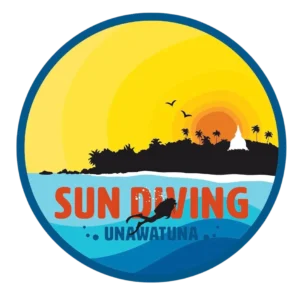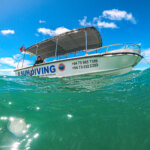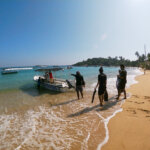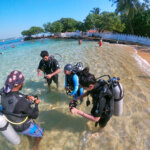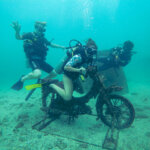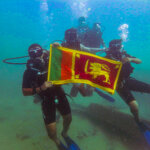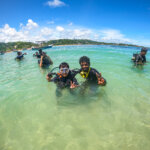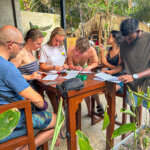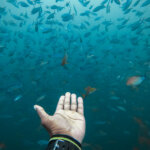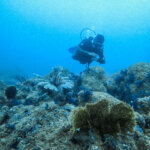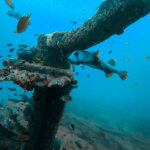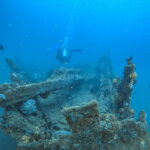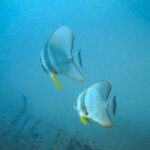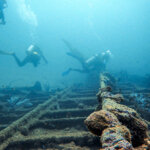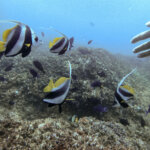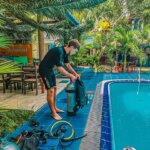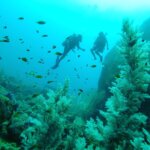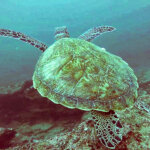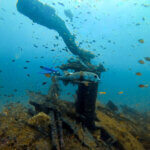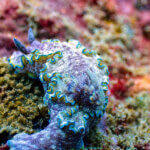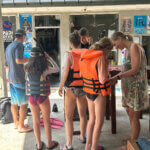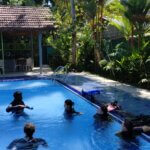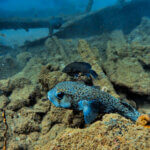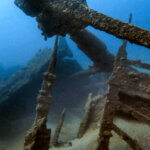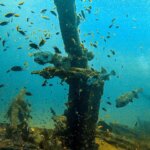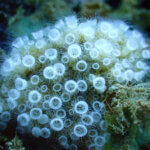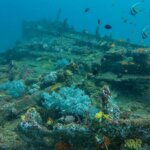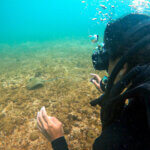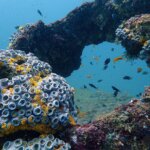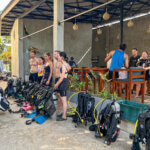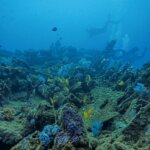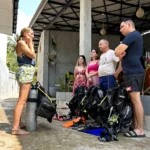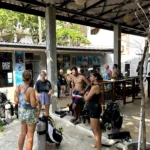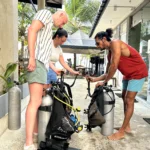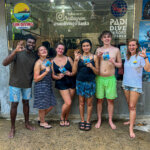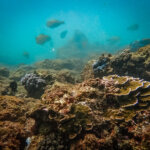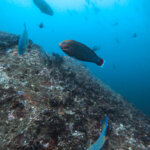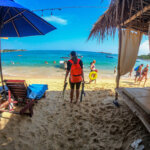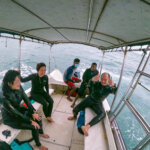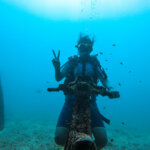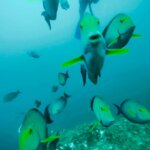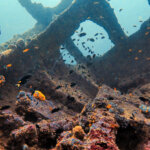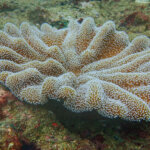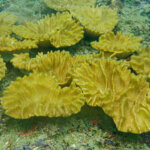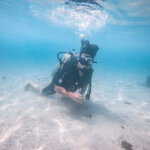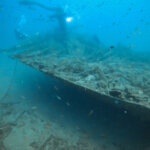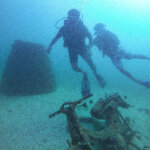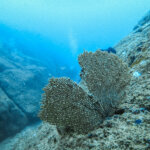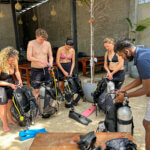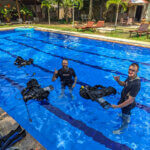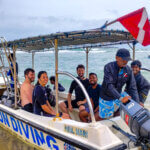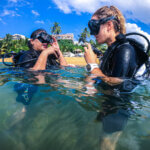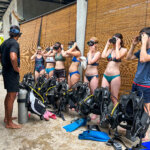Let’s have a chat about the so called ‘Off Season’ in South..
The notion of an ‘off-season’ in Unawatuna and the broader southern region of Sri Lanka has long been an accepted belief in the tourism industry. Traditionally, from May through October, tourists are directed eastward due to perceived adverse weather conditions characterized by monsoons, heavy rains and storms. This belief has been continued through various travel blogs and articles by foreigners, shaping the narrative that this period is best avoided for any tourist / leisure activities in the south.
However, the dynamics of global climate change have begun to challenge these beliefs. What was once a prolonged monsoon season, lasting several months with intense rainfall and storms, has now reduced into a shorter period, mainly occurring in May and June.
Unfortunately, this does have implications for scuba diving during these months, where strong currents and reduced visibility pose challenges. However, this period will be brief compared to the entire six-month ‘off-season’ we experience.
Additionally, in Sri Lanka, the concept of “seasons” also revolves around giving opportunities to the opposite coast like Arugam Bay or Trincomalee, where they have fewer months for tourism. Many businesses shift operations there, defining Sri Lanka’s tourism “seasons” as opportunities to profit in different locations and change of environments. However, if enough people challenge the notion of an “Off Season” in the South, businesses could potentially thrive year-round and sustain tourism here as well.
Yet, beyond these transient conditions lies a window of opportunity that often goes unrecognized.
And, we absolutely challenge any notion that Unawatuna isn’t still a fantastic destination to visit during these months, and here’s why!..
🤿 First and foremost.. yes, there may be times when diving is temporarily unavailable for safety reasons. However, during 70-80% of the off-season, we will be open and conducting diving sessions. The main downfall is that visibility and conditions may not always be optimal, typically ranging between 2-5 meters until August. Nevertheless, if you’re in the south and looking for an activity or aiming to get certified, Scuba Diving offers a fantastic opportunity to gain experience and possibly enjoy sudden improvements in visibility and sightings!
☀ Most days are characterized by clear, sunny weather and intense heat, occasionally presented with showers (a pleasant surprise in the tropical heat exceeding 33 degrees Celsius!). This pattern is not much different & resembles the season, as those familiar with this time know to also anticipate sudden rain showers and rough seas during full moon cycles.
🏝 During these months, fewer tourists populate the beaches and roads, as many venture to the East for surfing. Trust us when we say, Unawatuna Beach & walking street is exceptionally peaceful and stunning during this period with less crowd. Providing a more intimate experience amidst stunning coastal landscapes (and finding a free sunbed is much easier too!)
🚘 The South coast is more convenient for travelers with limited time or those preferring shorter distances from the airport. In contrast, the East coast requires a longer travel time of 7-8 hours from Colombo.
💲Many restaurants & tour agencies offer discounts and special offers to attract customers during the slower season.
🗺 There are plenty of activities to enjoy in and around Unawatuna, even when ocean conditions are less favorable. Options include exploring Galle Fort and the Old Town, visiting tea plantations, going on lake safaris, playing mini golf at Swing Ceylon, visiting Leisure Land, having a delicious meal and drinks at a beach restaurant, great shops, and much more!
Ultimately, the message is clear: don’t dismiss the south of Sri Lanka during the ‘off-season’ based solely on outdated perceptions or hearsay. By challenging the misconceptions surrounding the ‘off-season’, travelers can discover a side of Unawatuna and the southern coast that’s as vibrant and inviting as during the peak tourist months.
